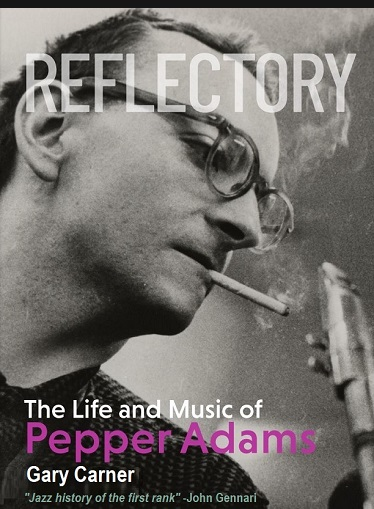March slipped away without a blog post and this one is late.
I had started a new day job in late February that was a
distraction, and now I’m involved in a move. Packing is no
fun at any age, but especially this time around.
No news yet on the release date for Pepper Adams:
Saxophone Trailblazer. Fall is still the projected date. Again,
it’s the abridged paperback version of
Reflectory: The Life and Music of Pepper Adams,but devoid of music links and many photographs. Reflectory
will remain in print, is likely $5 cheaper, and far more
authoritative. The music links are incredible! 250 solos you’ve
never heard!
https://www.pepperadams.com/Reflectory/index.html
The Pepper Adams Archive is now available for study at William
Paterson University. It’s becoming more likely that the last two
deliveries of my Adams stuff will get there by summer. Most of it,
still sitting at my sister-in laws, includes Adams’s charts for his
Charles Mingus tribute date for Motown, numerous photos, and
various ephemera.
The February 26 Adams panel discussion was a tremendous
success. It should be posted at pepperadams.com in a few weeks.
The delay is due to our opening speaker, Paul Tynan, who had
Zoom issues when demonstrating on trumpet Pepper’s licks and
phrases. Once he repairs his music examples, you’ll be delighted
with the new ground that he and all the participants broke. Here’s
the roster:
Paul Tynan: “Clarion Calls” (1959)
Joseph Trahan: “‘Tis” (1958)
Ben Sidran: “Little Rootie Tootie” (1959)
Aaron Lington: “Each Time I Think of You” (1961)
Andrew Hadro: “Incarnation” (1963)
John Vana: "Azure-Te" (1963)
Logan Ivancik: “Once Around” (1966)
Frank Basile: “Currents/Pollen” (1973) and “Wind from the Indies” (1977)
Adam Schroeder: “Three and One” (1975)
Courtney Wright: “It Could Happen to You” (1980)
Noah Pettibon: “Three Little Words” (1981)




